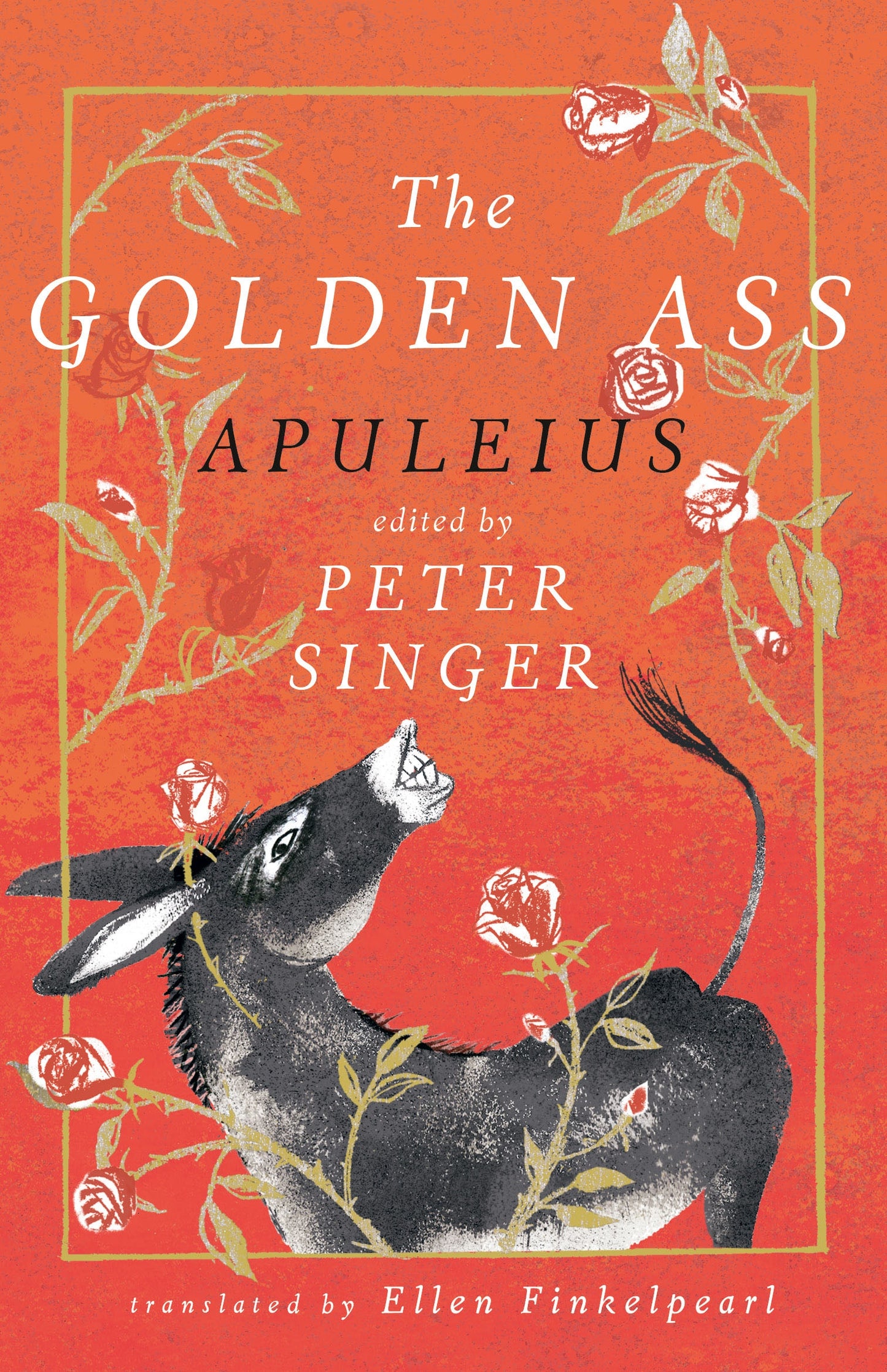Apuleius
The Golden Ass
The Golden Ass
Couldn't load pickup availability
Lindsay’s Review
A careering and bawdily hilarious adventure, written under the reign of Emperor Hadrian, The Golden Ass (also known as Metamorphosis) is the first novel ever written. Copied and re-copied over the centuries marks it as an enduring bestseller. Apuleius not only uses a new literary form but manages to include most of the genres to follow: historical fiction, mythology, romance and magic realism. When the main character Lucius mixes ribald love with a slave girl with his desire to learn magic, his trip to Thessaly becomes cursed by being turned into an ass (donkey). With great suffering he struggles to survive the ordeal as he learns first-hand the woes of slavery, and the trials and tribulations of being a pack animal in ancient times. The story is peppered with other ancient tales, as a return to manhood relies on Lucius finding and eating consistently elusive rose petals.
Algerian writer Apuleius has created colourful and believable characters, and has used the imagery and allusions of the times to poke fun at the Greeks and Romans. With a short forward and epilogue chapter by philosopher Peter Singer, this book is an important and entertaining read for anyone interested in Roman culture, especially for people fascinated by the birth of literature. The quality of the writing is excellent, and uses a modern style of narration. A genuine literary great, timeless, and still relevant. A tale that will stay with you.
Publisher’s Review
Peter Singer has breathed new life into Apuleius's The Golden Ass - a hilarious, bawdy tale and one of the earliest novels.
Apuleius's The Golden Ass, one of a handful of surviving ancient novels, has remained relatively unknown-until now. Renowned philosopher and animal rights activist Peter Singer remedies this neglect with a new edited version of the rollicking story of the travails, erotic adventures and ultimate enlightenment of a cocky young man who is transformed into a donkey.
Singer has teamed with Apuleius scholar and translator Ellen Finkelpearl and prize-winning artists Anna and Varvara Kendel to present Apuleius's novel as not only an engaging and entertaining story but as a remarkable example of ancient empathy for animals and deep understanding of their suffering.
Share


